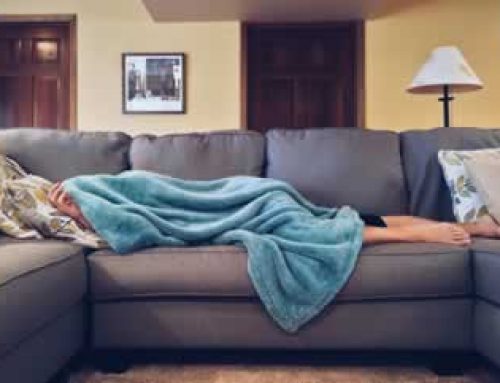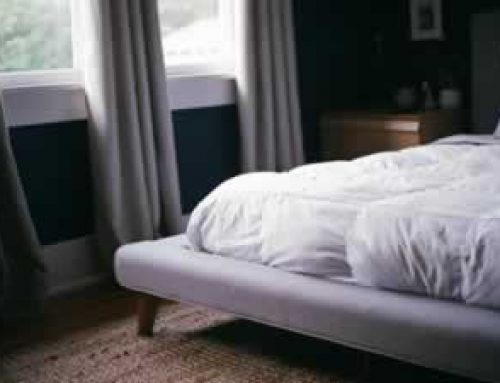9 Common Sleep Problems with Simple Solutions.
Sleep is an important aspect of our overall health and wellness. Do we all get enough of it? Certainly not. In fact, 30% of American adults sleep less than 7 hours per night. The question is, why are we not getting enough sleep. Reasons are different for every individual, and some may be more chronic than others. Here are nine common sleep problems that we’re sure you can relate to, and simple solutions to get you sleeping better;
Trouble falling asleep
Even when you feel tired, and you know your body needs sleep, sometimes it’s still hard to actually fall asleep.
- Avoid caffeine 6 hours before bedtime
- Exercise in the morning or afternoon rather than evening
- Turn off electronics one hour before going to bed
Trouble Waking Up
Even when you feel like you received a good night sleep, it may still be hard to pry yourself out of bed in the morning and get the day started. This could be due to an inconsistent sleep schedule.
- Get your body on a set sleep schedule
- Try to wake up and go to sleep at the same time every day including weekends
- Don’t hit snooze – Place your alarm away from your bed so you must get up to reach it
- Get sunshine in the morning – take a step outside for fresh air and morning sun
Trouble staying asleep
We’ve all had those nights where we continuously wake up through the night and have trouble falling back to sleep – it does not make for an enjoyable morning!
- Make sure your room is dark
- Avoid alcohol before bed, as it can decrease your deep REM sleep time.
- Keep your bedroom cool, between 65-72 degrees F.
- Use a white noise machine or fan to avoid eerie silence and ease the mind
Snoring
Snoring can not only disrupt your sleep, but your bed partners sleep as well. No one wants that!
- Try sleeping on your side
- Use a pillow to prop your head up
- Clear out sinuses with saline before bed
- Avoid alcohol before bed
Neck Pain
Comfort while sleeping can make all the difference in the quality of your sleep. There’s nothing worse than waking up with a stiff neck to start your day.
- Test out different pillows to find which best works for you
- Replace pillows about every two years for the best quality
- Apply ice or heat and massage the area
- Practice slow range exercises of the neck
Acid Reflux
The constant burning sensation of heartburn does not typically allow for a good night sleep. Finding what causes your acid reflux and avoiding that is the best option.
- Sleep on your left side
- Elevate your head 6 to 8 inches
- Avoid laying down after large meals
- Don’t consume alcohol, spicy foods, fats, or tomato-based foods before bed.
Shoulder Pain
A dull pain in your shoulder while switching sleep positions at night may be keeping you tossing and turning all through the night.
- Sleep on your back rather than your side
- Avoid pressure or sleeping on the side of your painful shoulder.
- Apply heat or cold to the painful joint before bed
- Hugging a pillow may help relieve pain
Leg Cramps
Leg cramps can be very unpleasant, especially when occurring while you’re trying to rest.
- Stretch before bed and to ease the pain
- Massage the area
- Apply heat to the muscle
Back Pain
Sleeping with back pain can cause for a long night of restless sleep, and
- Sleep on your side is typically best
- Place pillow between your legs to keep the spine neutral
- Use heating pad in order to relax muscles
- If sleeping on back, place a pillow under your legs
+5 Mini Habits for Better Sleep
Did you know, 39.7% of American workers are suffering from fatigue? Not getting an adequate amount of sleep can affect mental health, energy levels, workability, family and social life, and overall wellbeing. Here are 5 quick mini habits that will lead you to better sleep and energy levels.
-
Downtime
An hour before bed turn off electronics, and stop your work for the day. It’s time to relax. About 10-30 minutes before sleep, turn off all lights and meditate. Meditation can stimulate secretion of melatonin, a sleep hormone that promotes better sleep.
-
Make your bedroom your sanctuary
Turn off all the lights in your bedroom and use blackout curtains. Keep your room clean, your bed made, and decorate with cool calming colors that make you feel relaxed. Use your bedroom for sleep and sex only.
-
No phones in the bedroom
Stop that late-night Facebook or Pinterest session. Sleep without our devices in the room to prevent blue light exposure and be able to fall asleep faster.
-
Exercise in the mornings
Exercising in the mornings improves blood pressure and sleep quality. It’ll wake you up and have you feeling refreshed and ready for the day.
-
Bring positivity to bed
Leave the stress of your day outside of the bedroom. Go to bed thinking of the positive things you accomplished today and give yourself a pep talk for doing even better the next day. Wake up with the same motivation to do great.
Let’s take back our energy together.






















































